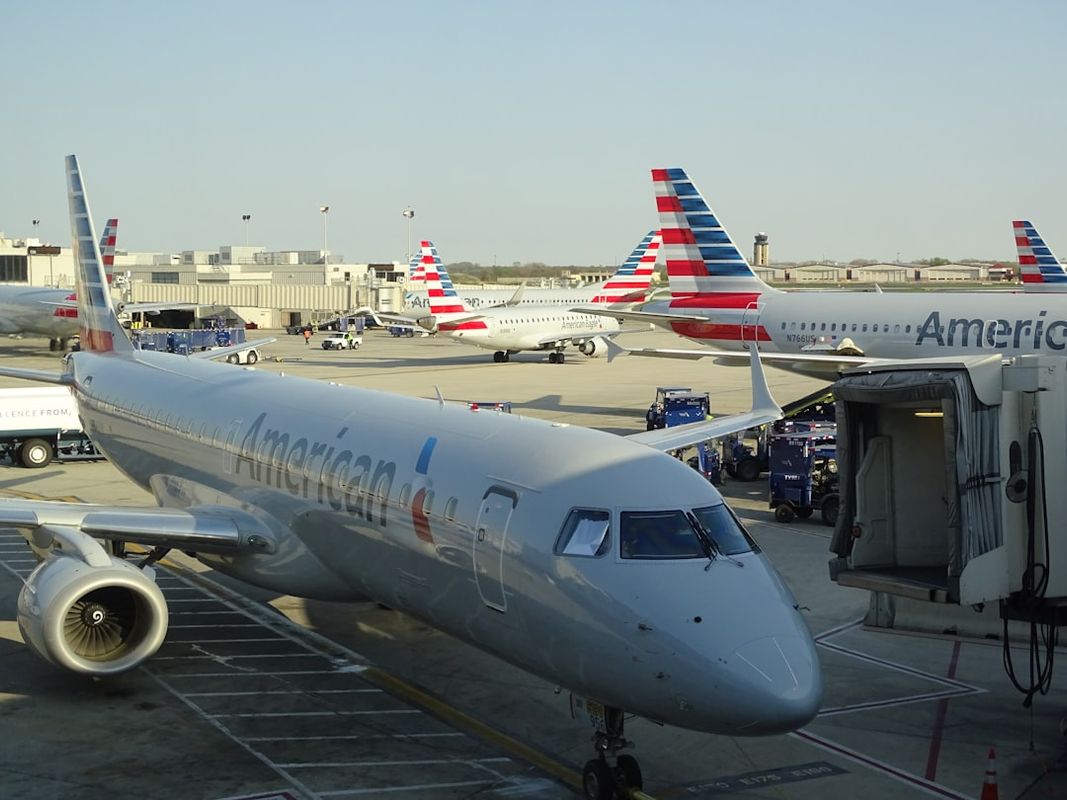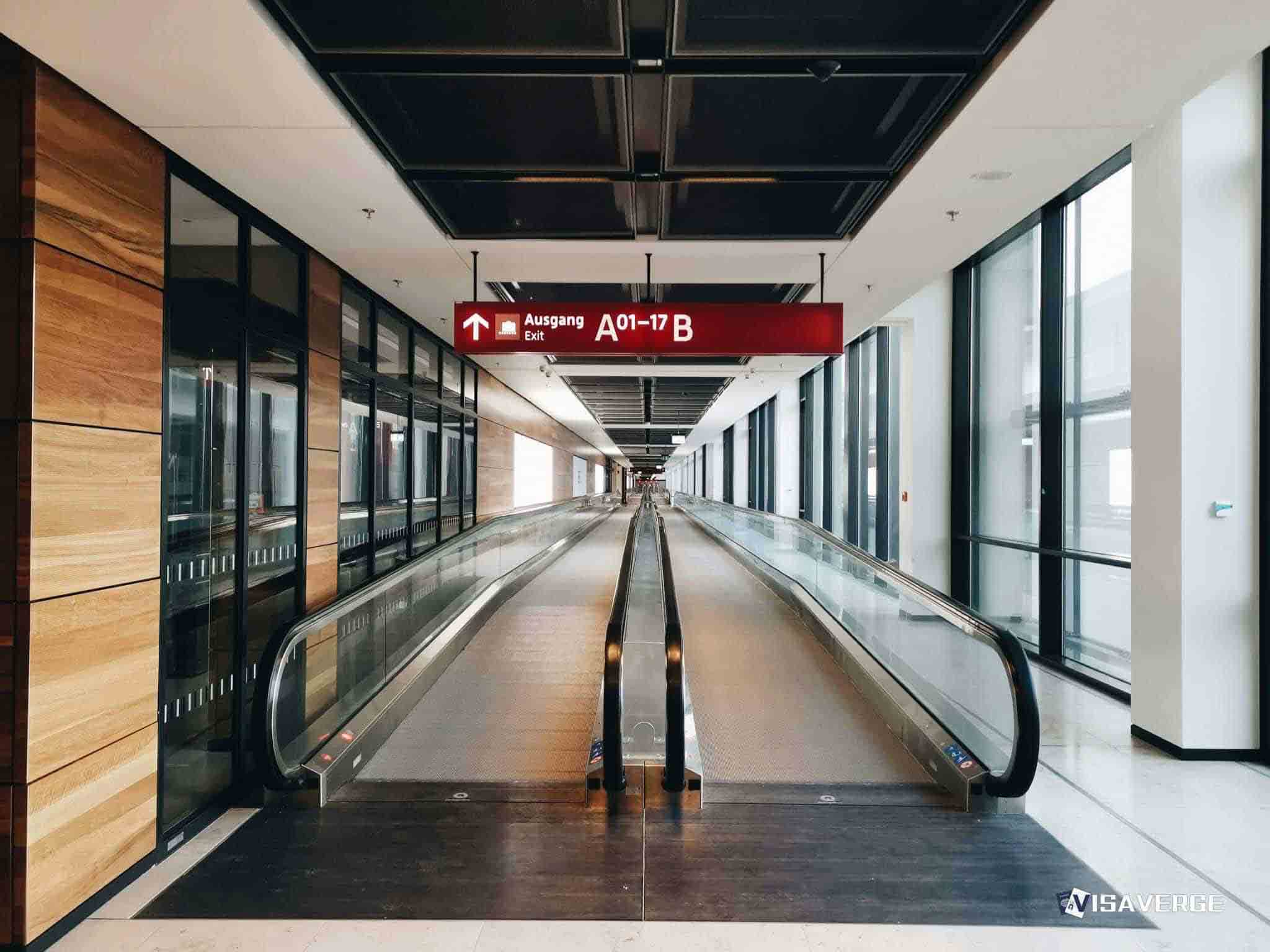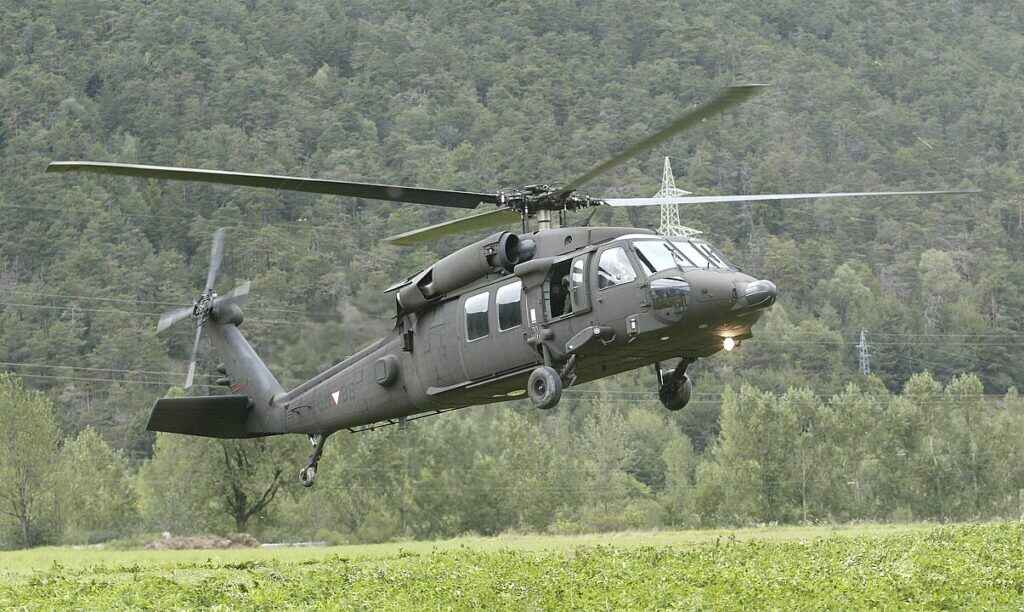Key Takeaways
• American Airlines flight 3390 diverted on June 29, 2025, after departing Northwest Arkansas National Airport.
• All passengers landed safely; airline followed standard FAA safety protocols during the unexpected diversion.
• Passengers received rebooking, accommodations; crew praised for professionalism despite undisclosed diversion cause.
On June 29, 2025, American Airlines flight 3390, which had just departed from Northwest Arkansas National Airport (XNA), was unexpectedly diverted. The incident quickly drew attention from both local and national media, as passengers shared their emotional stories and praised the professionalism of the airline crew. While the exact reason for the diversion has not been officially disclosed, the safe landing and the airline’s response have become central topics of discussion for travelers, aviation professionals, and the broader public.
This article provides a detailed account of the incident, explores the procedures and policies that guide airline diversions, and examines the practical effects on passengers and the airline industry. It also offers guidance for those who may find themselves in similar situations, drawing on official sources and recent developments.

A Sudden Change in Course: What Happened on American Airlines Flight 3390
Passengers aboard American Airlines flight 3390 expected a routine journey when they boarded at Northwest Arkansas National Airport (XNA) on Sunday, June 29, 2025. Shortly after takeoff, however, the flight crew informed travelers of a sudden change in the flight path. The plane was being diverted to an alternate airport. According to one passenger, the experience was “harrowing,” and many on board felt a mix of fear and relief as the situation unfolded.
Despite the uncertainty, the crew maintained calm and kept passengers informed. The aircraft landed safely, and there were no injuries or fatalities among the passengers or crew. Upon arrival at the alternate airport, American Airlines staff provided updates and support, helping travelers with their next steps.
Why Are Flights Diverted? Understanding Airline Safety Protocols
Flight diversions are not uncommon in the airline industry. They are a standard safety measure used when a flight cannot continue to its planned destination. Reasons for diversions can include:
- Technical issues: Problems with the aircraft that require immediate attention.
- Medical emergencies: When a passenger or crew member needs urgent medical care.
- Weather conditions: Severe storms, fog, or other weather events that make landing unsafe.
- Security concerns: Threats or suspicious activity that require a change in plans.
In the case of American Airlines flight 3390, the specific reason for the diversion has not been made public. However, American Airlines confirmed that all standard safety protocols were followed, and the Federal Aviation Administration (FAA) reported no ongoing safety concerns related to the flight.
The Passenger Experience: Relief, Praise, and Lingering Questions
For those on board, the diversion was a stressful and emotional event. Passengers described the moment they learned of the change in course, with one saying, “We survived,” highlighting the fear and uncertainty they felt. Many also expressed gratitude for the crew’s professionalism and clear communication during the ordeal.
After landing, American Airlines staff worked quickly to assist affected travelers. Passengers were rebooked on alternate flights or provided with accommodations as needed. The airline also issued an apology and is conducting an internal review of the incident.
Official Responses: American Airlines, FAA, and Airport Authorities
As of July 1, 2025, American Airlines has not released a detailed statement about the cause of the diversion. The airline has, however, confirmed that all passengers were safe and that standard procedures were followed. The FAA is monitoring the situation and has not issued any new safety directives related to this incident.
Northwest Arkansas National Airport (XNA) continues to provide real-time flight status updates and can be reached at 479-205-1000 for additional information. The airport has also worked with the airline to support affected passengers.
Recent Airline Technology Issues: Are They Connected?
Just two days before the diversion, on June 27, 2025, American Airlines experienced a widespread technology issue that caused significant delays across its network. This problem affected connectivity for some of the airline’s systems, leading to long waits for passengers and delays at multiple airports. The FAA confirmed that, despite these delays, there were no safety concerns that would have grounded flights during the technology outage.
At this time, there is no official confirmation that the technology issue was related to the diversion of American Airlines flight 3390. However, the close timing of the two events has led to renewed discussion about the importance of reliable technology and clear communication in airline operations.
What Happens After a Flight Diversion? Procedures for Affected Passengers
When a flight is diverted, airlines have established procedures to help passengers reach their final destinations. For those on American Airlines flight 3390, the following steps were taken:
- Rebooking: Passengers were rebooked on alternate flights as soon as possible.
- Accommodations: Those who needed overnight stays were provided with hotel accommodations.
- Communication: American Airlines staff kept passengers informed and offered support throughout the process.
- Compensation: Travelers were advised to contact American Airlines customer service for information about compensation or further assistance.
Passengers who experience a diverted flight should always check with the airline’s customer service team for the latest updates and options. Northwest Arkansas National Airport (XNA) also provides real-time flight status updates and can assist with travel questions.
How Airlines and the FAA Handle Diversions: Policies and Protocols
Airlines like American Airlines follow strict FAA protocols when a flight must be diverted. These rules are designed to protect passenger safety and ensure that every decision is made with care. Key steps include:
- Immediate assessment: The flight crew and airline operations team assess the situation and decide whether a diversion is necessary.
- Communication: The crew informs passengers of the change and provides updates as new information becomes available.
- Coordination: The airline works with airport authorities and ground staff at the alternate airport to prepare for the arrival.
- Support: After landing, the airline provides assistance to passengers, including rebooking and accommodations if needed.
The FAA oversees these procedures and may conduct its own review after an incident. For more information about FAA safety regulations, readers can visit the official FAA website.
The Broader Impact: What This Means for Travelers and the Airline Industry
The diversion of American Airlines flight 3390 has prompted renewed discussion about airline safety, passenger communication, and the challenges of modern air travel. While diversions are rare, they highlight the importance of clear procedures and the need for airlines to support passengers during unexpected events.
For travelers, the incident is a reminder to stay informed and prepared. Knowing what to expect during a diversion—and understanding your rights as a passenger—can make a stressful situation more manageable. Airlines are required to follow strict rules, and passengers should not hesitate to ask for help or clarification if they have questions.
For the airline industry, the event underscores the need for reliable technology, well-trained crews, and strong communication channels. As airlines continue to invest in new systems and training, incidents like this one offer valuable lessons for improving safety and service.
No New Policy Changes—But Ongoing Reviews Continue
As of July 1, 2025, neither the FAA nor American Airlines has announced any new policy changes in response to the incident. Both organizations are conducting internal reviews, and further updates may be released in the coming weeks. For now, standard diversion protocols remain in place, and no additional safety concerns have been identified.
Practical Guidance for Passengers: What to Do If Your Flight Is Diverted
If you ever find yourself on a diverted flight, here are some practical steps to follow:
- Stay calm and listen: Pay attention to announcements from the crew and follow their instructions.
- Ask questions: If you are unsure about what is happening, ask the crew or airline staff for clarification.
- Keep your travel documents handy: You may need to show your boarding pass or ID at the alternate airport.
- Contact the airline: After landing, reach out to the airline’s customer service team for rebooking, compensation, or other assistance.
- Check airport resources: Use the airport’s website or information desk for updates on your flight status and available services.
American Airlines provides customer service through its official website and support lines. Northwest Arkansas National Airport (XNA) can be reached at 479-205-1000 for flight status and travel questions.
Passenger Stories: Real Experiences from American Airlines Flight 3390
Several passengers from American Airlines flight 3390 have shared their experiences with the media. Many described the initial shock of learning about the diversion, followed by relief when the plane landed safely. One passenger summed up the mood by saying, “We survived,” reflecting both the fear and gratitude felt by those on board.
Others praised the crew for their calm and professional handling of the situation. Clear communication and reassurance from the flight attendants helped ease anxiety and kept passengers informed throughout the ordeal.
The Role of Communication: Why It Matters During In-Flight Emergencies
Effective communication is critical during any in-flight emergency or diversion. Passengers rely on the crew for accurate information and guidance. In the case of American Airlines flight 3390, the crew’s professionalism and clear updates played a key role in keeping everyone calm and safe.
Airlines train their crews to handle emergencies, including diversions, and to communicate clearly with passengers. This training includes:
- Providing timely updates: Letting passengers know what is happening and what to expect.
- Answering questions: Addressing concerns and explaining procedures in simple language.
- Offering reassurance: Helping passengers feel safe and supported during stressful situations.
Looking Ahead: What Comes Next for American Airlines and the FAA
Both American Airlines and the FAA are expected to complete their reviews of the incident in the coming weeks. If new information emerges, it may lead to further updates or changes in policy. For now, the focus remains on supporting affected passengers and ensuring that all safety protocols are followed.
Travelers can stay informed by checking official airline and FAA websites for the latest news and updates. As reported by VisaVerge.com, incidents like this one highlight the importance of strong safety measures and clear communication in the airline industry.
Key Takeaways and Next Steps for Travelers
- Flight diversions are rare but important safety measures.
- Passengers on American Airlines flight 3390 were safe, and the crew handled the situation professionally.
- No injuries or fatalities occurred, and all standard protocols were followed.
- Affected travelers received support, rebooking, and accommodations as needed.
- No new policy changes have been announced, but reviews are ongoing.
If you are ever affected by a diverted flight, remember to stay calm, listen to the crew, and reach out to the airline for assistance. For more information about airline safety and passenger rights, visit the FAA’s official website.
Contact Information for Further Assistance
- American Airlines Customer Service: Available through the airline’s official website and support lines.
- Northwest Arkansas National Airport (XNA): Flight status and inquiries at 479-205-1000.
- FAA: For regulatory updates and safety information, visit the FAA website.
As the investigation continues, travelers can expect more information to become available through official channels. Staying informed and prepared is the best way to handle unexpected events in air travel.
Learn Today
Flight Diversion → A safety measure rerouting a flight when continuing to the planned destination is unsafe or impossible.
FAA → Federal Aviation Administration; the U.S. agency responsible for regulating civil aviation and ensuring flight safety.
Rebooking → Process of assigning passengers to alternate flights after cancellations or diversions.
Technical Issues → Aircraft malfunctions or failures requiring immediate attention to ensure flight safety.
Passenger Compensation → Monetary or service-based reimbursement provided by airlines after disruptions like diversions.
This Article in a Nutshell
On June 29, 2025, American Airlines flight 3390 was diverted after takeoff from Northwest Arkansas National Airport. The crew managed the situation professionally, ensuring passenger safety, prompt communication, and support, with no injuries. The cause remains undisclosed, highlighting airline protocol and passenger guidance during emergency diversions.
— By VisaVerge.com













